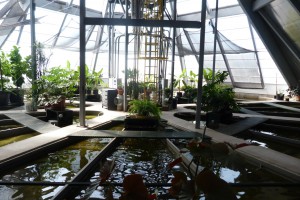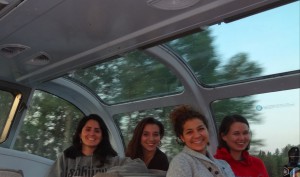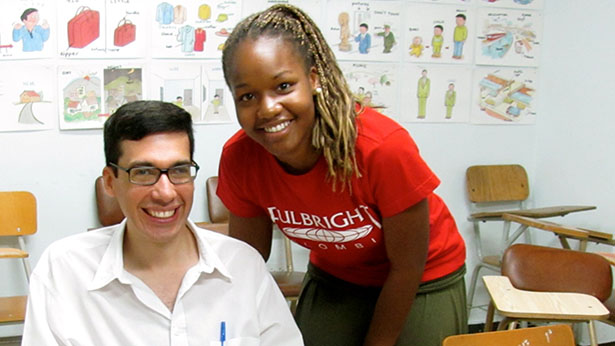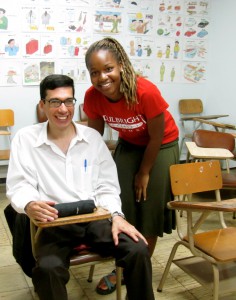
The Green Power house uses algae and sunlight to transform waste into energy at the Algae Aqua-Culture Technologies in Portland, Oregon.
In the words of Silvia Tijo, a Fulbright Foreign Student from Colombia:
Our visit to Whitefish, Montana ended on Sunday. I had the opportunity to visit Algae Aqua-Culture Technologies as part of my Fulbright-Millennial Trains Project (MTP). They have a Green Power house, which transforms waste into energy with the help of sunlight and algae. The Green Power house is a unique project that I was able to personally experience thanks to the stop made there by the MTP train and to Robin Kelson, the Vice President of Corporate Development at Algea Aqua-Culture Technologies, for the hospitality and tour provided on such a short notice. Although the visit to Whitefish was short, it was productive, and it prepared us for a long trip ending at the Twin Cities (St. Paul / Minneapolis).
Sunday started early with a small group of researchers waking up to enjoy the sunrise over the landscape of Montana. The journey from Whitefish, Montana to Saint-Paul, Minnesota started at 6:30 a.m. when the locomotive pulled the three cabins of the MTP: the Silver Splendor, the Pacific Sands, and the Salisbury Beach. Shortly after departing on this part of the trip, it became an excuse to learn about the beauty of America’s landscape and the diversity of its people.

From left to right; Silvia Tijo, Ayla Boyle, Sarah Al-Khayyaal, and Kay-Anne Reed, participants of the MTP.
The Silver Splendor was full of life all Sunday since the entire day we spent in transit. This cabin is where we spend most of our time, and the space morphs as the day progresses: first, as a dining hall; then, a place to hang out; later, office space; and it even became a disco as the train chugged through one of the longest tunnels in the United States.
After breakfast, Julie Ershadi, the Sous chef Simone, and myself chatted while we cracked pistachos needed for lunch. Julie is from Los Angeles, California. She is developing a multimedia project on Iranian – Americans as cultural pioneers and bridge-gappers.


